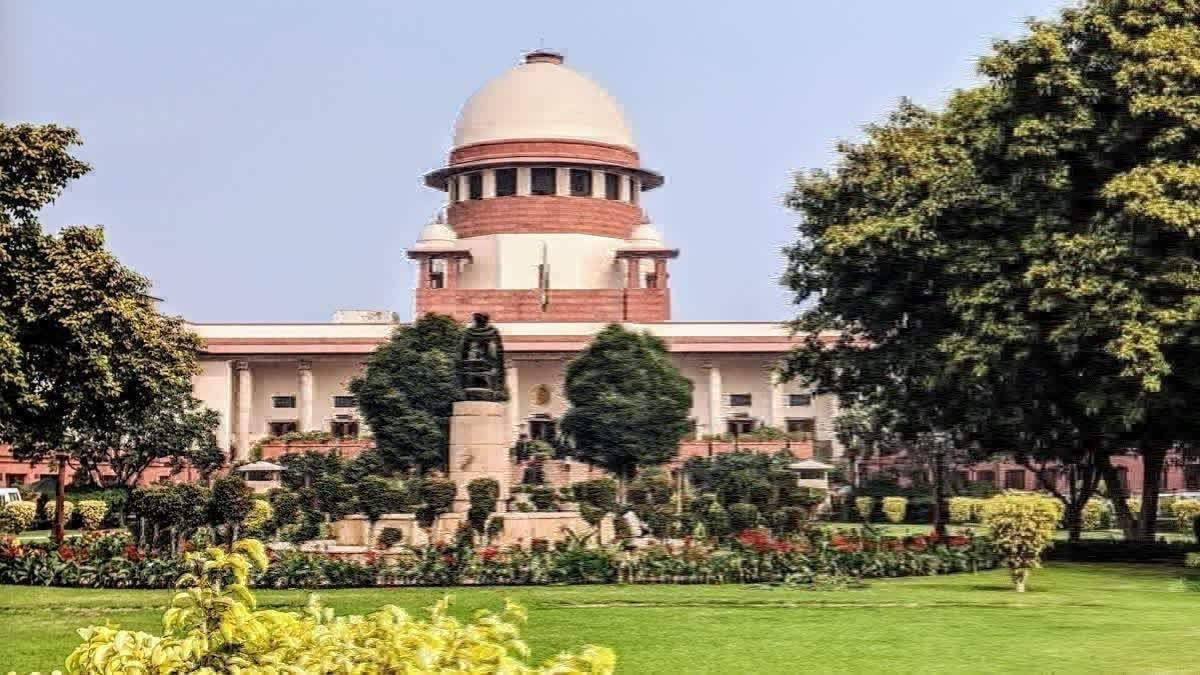New Delhi: In a nearly 40-year-old murder case, the Supreme Court on Wednesday acquitted all the seven accused persons saying that the motive in the present matter, a property-related dispute, could operate both ways and, in a hypothetical sense, both sides could benefit from implicating the other.
A bench comprising Justices Bela M Trivedi and Satish Chandra Sharma said: "As regards motive, we may suffice to say that motive has a bearing only when the evidence on record is sufficient to prove the ingredients of the offences under consideration. Without the proof of foundational facts, the case of the prosecution cannot succeed on the presence of motive alone. Moreover, the motive in the present matter could operate both ways."
The bench said the accused persons and the eyewitnesses belong to the same family and the presence of a property-related dispute is evident and, in a hypothetical sense, both sides could benefit from implicating the other. "In such circumstances, placing reliance upon motive alone could be a double-edged sword. We say no more," said Justice Sharma, who authored the judgment on behalf of the bench.
Justice Sharma said the prosecution has failed to discharge its burden to prove the case beyond a reasonable doubt, and the reasonable doubts are irreconcilable and strike at the foundation of the prosecution's case. "Thus, the appellants are liable to be acquitted of all the charges," he said.
The bench said: "We may briefly note and reiterate that the offence of murder is entirely dependent on circumstantial evidence. Although, the post-mortem report indicates that the death of the deceased was unnatural and the commission of murder cannot be ruled out."
However, the bench said there is no direct evidence on record to prove the commission of murder by the accused persons and the link of causation between the accused persons and the alleged offence is conspicuously missing.
The bench said the circumstantial evidence emanating from the facts surrounding the offence of abduction, such as the testimonies of eyewitnesses, has failed to meet the test of proof and cannot be termed as proved in the eyes of law.
"It is trite law that in a case based on circumstantial evidence, the chain of evidence must be complete and must give out an inescapable conclusion of guilt. In the present case, the prosecution case is far from meeting that standard," said Justice Sharma.
The bench, while acquitting the accused, expressed its discontent at the Patna High Court's observations that a widow cannot be expected to have make-up articles.
"In our opinion, the observation of the High Court is not only legally untenable but also highly objectionable. A sweeping observation of this nature is not commensurate with the sensitivity and neutrality expected from a court of law, specifically when the same is not made out from any evidence on record," said Justice Sharma.
The bench said mere presence of certain make-up articles cannot be conclusive proof of the fact that the deceased was residing in the said house, especially when another woman was admittedly residing there.
On August 30, 1985, one Neelam breathed her last in Simaltalla, district Munger, Bihar. The brother-in-law of the deceased alleged that Neelam was abducted by seven persons from their house in an incident which occurred at around 10:00 PM on the said day, and an FIR was lodged and seven persons were named as accused.
In 1992, the trial court convicted five out of seven accused under sections 302 and 364 and acquitted two persons. The High Court overturned the acquittal of the two accused persons and also affirmed the conviction of five accused persons. All the seven accused moved the apex court assailing the High Court order.
The top court noted that pertinently, the conduct of the eyewitnesses also appears to be unnatural considering that they were all relatives of the deceased, and the projected eyewitnesses failed to explain their presence at the place of occurrence, rendering the entire version of the prosecution as improbable and unreliable.
"The make-up articles were linked with the deceased on the basis of a completely unacceptable reasoning and without any corroborative material. The prosecution has failed to examine even one cohabitant to prove the said fact. Furthermore, no personal belongings of the deceased, such as clothes, footwear, utensils etc., could be found in the entire house. Therefore, we are not inclined to believe that the deceased was actually residing in the house at Simaltalla," said the apex court.
The apex court set aside the judgments of the trial court and the High Court and acquitted all seven persons of all the charges levelled upon them and directed that the appellants should be released forthwith if lying in custody.



